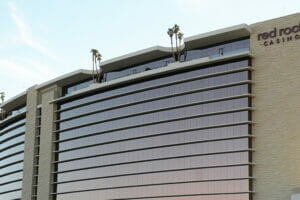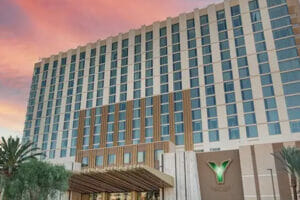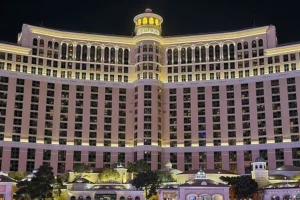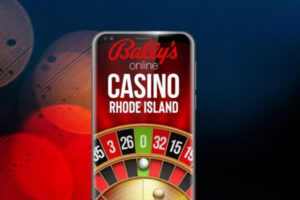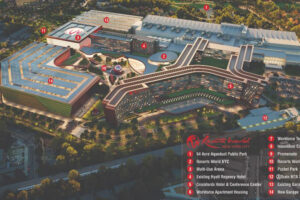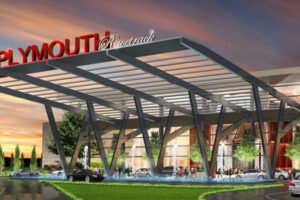San Francisco Casino Proposed by Local Real Estate Developer
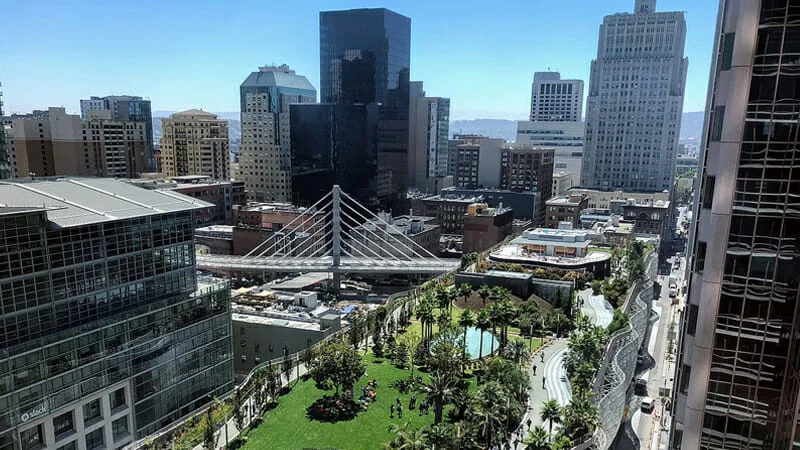
Downtown San Francisco, a bustling hub in one of the world’s most famous cities, has faced a lot of challenges over the past years. One developer, however, thinks an impressive modern casino resort could be the answer.
From escalating homelessness to the exodus of traders and rampant drug abuse, it is widely agreed upon that many parts of San Francisco’s central district have seen better days. The COVID-19 pandemic only exacerbated these issues.
Stanford Horn, a seasoned real estate executive with affiliations to Coldwell Bank Commercial Real Estate Services and Cushman Wakefield, has proposed a downtown casino as a way of bringing life back to the area.
He detailed those potential plans in a recent op-ed piece for the San Francisco Business Times, pointing out a largely unused downtown building project as a potential site for a casino transformation.
A Vision for Prosperity
He envisions the Salesforce Transit Center or STC (pictured) as the ideal location for a new casino that could bring prosperous visitors back to the downtown area.
With more than 25 years in the commercial real estate sector, Horn’s insights carry weight.
“A modern 4.5 football-field-long asset right in the heart of the city sits ready and waiting to become a giant prosperity machine, bringing tens of thousands of people and employees downtown every day, 24 hours a day, 365 days a year,” Horn said.
The STC, part of a $2.5 billion project, has remained largely unused since its completion five years ago. Horn suggests that much of the construction is already done, reducing potential upfront costs for casino operators.
Challenges and Considerations
While the idea of a casino in one of the nation’s largest cities seems promising, it’s not without its challenges.
Cities like New York and Chicago have embraced gaming expansion, leveraging casino plans to rejuvenate specific areas and bolster local and state revenues.
However, California’s gaming landscape is predominantly tribal. These tribal entities wield significant influence in state politics, potentially posing challenges to private casinos entering prominent Californian markets.
Interestingly, the property Horn mentions isn’t on tribal land, suggesting that Native American gaming entities might not have the right to operate a casino there. If the idea gains traction, a possible solution could be a collaboration where a California tribe owns the venue, while management is outsourced to a Nevada-based operator.
Yet, a casino alone might not be the panacea for all of San Francisco’s woes.
The city’s homelessness issue is widely reported on, with 7,800 individuals registered without a permanent residence being the tip of the iceberg. The legendarily picturesque city has always had a rough-and-ready aspect. But in recent years, the Skid Row district known as the Tenderloin has become even more infamous.
Notably, a giant flagship Whole Foods store opened in the district, hoping to service workers from the nearby big tech offices. However, it closed abruptly after just one year with rampant shoplifting and anti-social behavior blamed for discouraging customers.
Additionally, San Francisco’s tourism hasn’t fully rebounded post-pandemic. Current estimates suggest the city will draw 23.9 million visitors this year, a decline from the 26.2 million in 2019.
Downtown Casinos: A Global Trend
Horn’s proposal isn’t without precedent in the global market.
Cities like Montreal, Detroit, Chicago, New Orleans, Vancouver, and Philadelphia have integrated casinos into their downtown or adjacent areas.
While some experts caution against viewing downtown casinos as a guaranteed success, pointing out that they might not always deliver the anticipated economic boost, others see potential.
LIVE! Casino Pittsburgh, for example, recently celebrated the positive effects of its 2% revenue share agreement with the local community that it pays in addition to taxes.
San Francisco’s tryst with casinos isn’t new. In 1988, there was a proposal to introduce a gaming venue at the infamous Alcatraz prison, which eventually didn’t materialize.
“Downtown or downtown-adjacent casino projects exist in New Orleans, Chicago, Detroit, Philadelphia, Vancouver, Montreal, and elsewhere,” Horn said in the op-ed.
However, the plans may also face public opposition, despite the potential economic benefits. Over the past decade, California residents have consistently voted against legal gambling expansion when given the chance.



